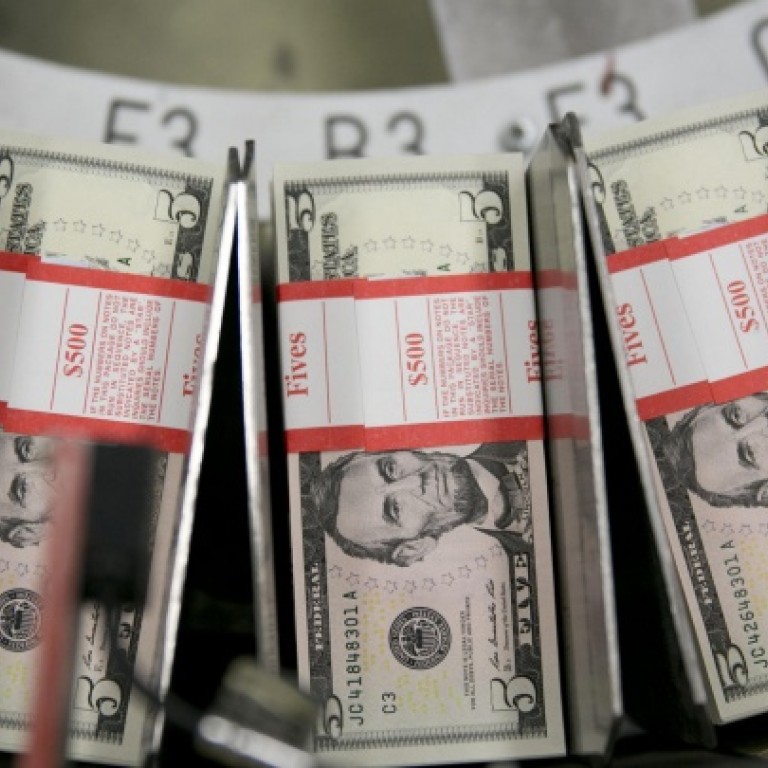
Time for more easy money
With inflation slowing, central banks are ready to continue quantitative easing programmes, and in Japan's case, to dramatically ramp it up
Slowing inflation is giving central bankers scope to provide the world economy with more liquidity and lower interest rates for longer, all in the name of price stability.

Federal Reserve chairman Ben Bernanke at a policy meeting that starts tomorrow may have more room to press on with asset purchases as the argument against that strategy is undercut by waning inflation risks.
Their counterparts from New Zealand to Canada also have more reason to keep policy loose.
The odds of disinflation are mounting as the world economy slows anew and commodity prices slide, defying forecasts that easy money would trigger an acceleration of prices. More than half of the world economy, including the United States and the euro area, instead confronts inflation below the central banks' desired levels, according to Ethan Harris, a co-head of global economics research at Bank of America in New York.
"There is a developing inflation problem: undesirably low inflation," said Harris, a former Federal Reserve Bank of New York economist. "For central banks, this increases the pressure to maintain super-easy monetary policy."
Declining prices for everything from petrol to coffee are good news for consumers. The danger comes when disinflation turns into deflation, which leads households to hold off purchases in anticipation of even lower prices, and companies to postpone investment and hiring as demand for their products dries up and profits drop.
In Japan, which has suffered falling prices in 11 of the past 14 years, the new Bank of Japan governor, Haruhiko Kuroda, this month announced a doubling of monthly bond purchases in a bid to reach 2 per cent inflation in two years and revive the world's third-largest economy.
The central bank largesse is buoying world stock markets, led by Japan's, where the Nikkei-225 Index is up 12 per cent this month. Even with signs of tepid expansion, the MSCI World Index has risen 8.9 per cent this year.
"We're not seeing the end of the road at all" to central bank efforts to boost growth, said Elizabeth Corley, the chief executive of Allianz Global Investors.
That meant "there is this element of having some policy support for going into riskier assets", she added. She mentioned "high-quality equities," particularly in Europe, as an attractive place to invest.
"The intensity of central bank reflation" argues that investors should overweight equities and underweight bonds in their portfolios, Bank of America chief investment strategist Michael Hartnett and his colleagues wrote in an April 25 report.
Government bond yields worldwide are at record lows of about 1.3 per cent, according to Bank of America Merrill Lynch's Global Broad Market Sovereign Plus Index.
Behind the receding inflation pressures: continued slack that led the International Monetary Fund to cut its forecast for global economic growth this year to 3.3 per cent from 3.5 per cent.
Tighter fiscal policy is starting to squeeze the US, while the euro area is feeling the economic fallout of its debt crisis amid 12 per cent unemployment. China may be shifting to a lower-growth gear after having expanded 7.8 per cent last year, the weakest in 13 years.
Inflationary forces are further abating in the wake of this month's collapse in the price of commodities from oil to copper.
Julian Callow, the chief international economist at Barclays in London, estimates what he calls the commodity price "tax" will be about zero this year, after having been responsible for 1.3 percentage points of the Group of Seven's average inflation rate in 2011.
"Given the outlook for the global economy, it's hard to see how this commodity super-cycle" of rising prices "can continue", said John Lipsky, a former first deputy managing director at the International Monetary Fund and now a professor at John Hopkins University.

McDonald's is among companies feeling a profit pinch because it is unable to raise prices. The world's largest restaurant chain by sales posted first-quarter earnings that were little changed from a year ago.

